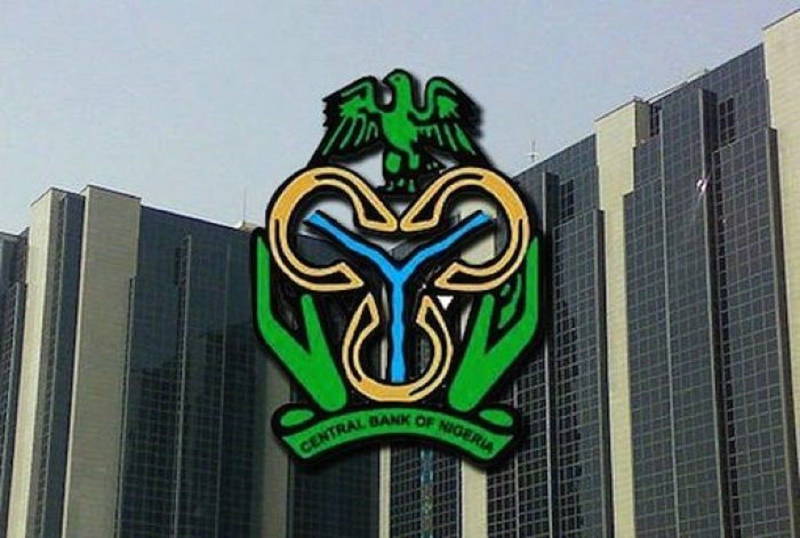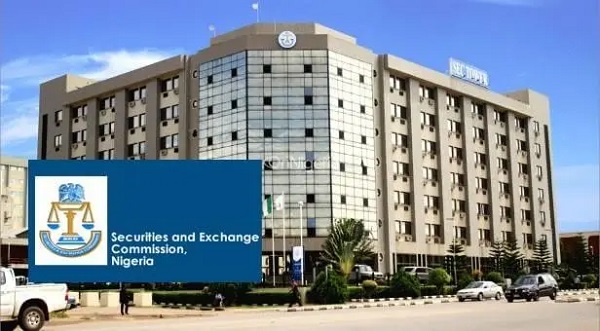
Keep up with the latest news and be part of our weekly giveaways and airtime sharing; follow our WhatsApp channel for more updates. Click to Follow us
The Central Bank of Nigeria (CBN) has projected a 4.1% economic growth for 2025, driven by sustained government reforms, stable crude oil prices, and improvements in domestic oil production.
CBN Governor, Mr. Olayemi Cardoso, made this projection at the launching of the Nigeria Economic Summit Group 2025 Macroeconomic Outlook, where he also announced that foreign exchange market reforms implemented in 2025 resulted in $6 billion foreign capital inflows into the country.
According to Cardoso, “Estimates of key economic indicators suggest a positive outlook for 2025… GDP growth is projected to rise to 4.17% in 2025 from 3.36% in 2024.” He attributed this growth to sustained implementation of government reforms, stable crude oil prices, and improvements in domestic oil production.
The CBN also expects domestic inflation to decline in 2025 as the impact of economic reforms begins to take hold. Cardoso emphasized the importance of effective collaboration between monetary and fiscal authorities alongside private sector participation to achieve the overall objectives.
“This growth is anchored on sustained implementation of government reforms, stable crude oil prices, and improvements in domestic oil production and increased refining capacity, driven by the Dangote refinery and the revitalization of the Port Harcourt and Warri refineries. Should significantly enhanced economic activity occur, a stable exchange rate will also play a crucial role in maintaining this positive trajectory.
“Domestic inflation is projected to decline in 2025 as the impact of economic reforms begins to take hold. Achieving our overall objectives requires effective collaboration between monetary and fiscal authorities alongside private sector participation.
“The current account surplus is expected to be sustained in 2025 on account of a strong export performance and steady diaspora remittances.
“Crude oil prices are expected to benefit from supply cuts by the OPEC and residual geopolitical tensions in the Middle East, while increased domestic crude oil and gas production supported by the full operations of major refineries will bolster the surplus.
“External reserves are projected to rise steadily, propelled by expected increases in crude oil production, which could reach 2.3 million barrels per day by mid-2025.
“Additionally, the expected rise in capital inflows and remittances and the reduced reliance on imported refined petroleum products due to domestic refining capacity could conserve foreign exchange, attract investment, and strengthen Nigeria’s economic resilience.”
In addition, the CBN projects a sustained current account surplus in 2025, driven by strong export performance and steady diaspora remittances. External reserves are also expected to rise steadily, propelled by increased crude oil production, which could reach 2.3 million barrels per day by mid-2025.
The Federal Government has defended its projection of a decline in the inflation rate to 15% in 2025, citing the base effect and the impact of economic reforms. Chairman of the Presidential Fiscal Policy and Tax Reforms Committee, Mr. Taiwo Oyedele, explained that the base effect alone suggests a 25% decrease in inflation and that the government’s projection is realistic based on data.
The Nigeria Economic Summit Group (NESG) has recommended measures to achieve economic stability in 2025, including consolidation, alignment, and complementarity of monetary, fiscal, sectoral, social safety, trade, and regulatory policies.
The World Bank has called on the federal government to increase the number of beneficiaries of its social intervention programs to reduce the cost of reforms on the poor and vulnerable. Senior Economist for Nigeria, World Bank Group, Dr. Samer Naji Matta, emphasized the importance of scaling up and accelerating these interventions to mitigate the impact of reforms on the most vulnerable Nigerians.
CBN’s Priorities for 2025
The CBN governor also outlined the bank’s priorities for 2025, which include maintaining price stability and building confidence. “We will therefore continue to prioritize increased investor confidence, enhance the efficiency of our financial markets, and drive innovation across sectors,” Cardoso said.
Foreign Exchange Market Reforms
In the foreign exchange market, the CBN aims to enhance transparency and efficiency. “It may interest you to know that the CBN will shortly be launching the foreign exchange code, which will offer clear directives on the expectations for market participants, ensuring that the market operates in a fair and transparent manner,” Cardoso added.
Exchange Rate Stability
The CBN also prioritizes exchange rate stability to foster a more competitive and business-friendly environment. “We will also prioritize exchange rate stability in order to foster a more competitive and business-friendly environment and encourage the inflow of foreign investment and, in addition, support fiscal operations in critical sectors of the economy,” Cardoso said.
NESG’s Recommendations
Earlier, the Nigeria Economic Summit Group (NESG) had recommended measures to achieve economic stability in 2025. Chairman of NESG, Mr. Olaniyi Yusuf, highlighted the need for consolidation, alignment, and complementarity of monetary, fiscal, sectoral, social safety, trade, and regulatory policies.
World Bank’s Call for Increased Social Interventions
The World Bank has called on the federal government to increase the number of beneficiaries of its social intervention programs to reduce the cost of reforms on the poor and vulnerable. Senior Economist for Nigeria, World Bank Group, Dr. Samer Naji Matta, emphasized the importance of scaling up and accelerating these interventions to mitigate the impact of reforms on the most vulnerable Nigerians.
Matta suggested that the government could finance these interventions using the funds saved from the removal of fuel subsidies. “If the cost of the fuel subsidy was N10 trillion per year, we can easily or the government can easily finance some of it in the budget for the poor and vulnerable to kind of reduce that cost of reform,” he said.
Conclusion
The CBN’s projection of 4.1% economic growth for 2025 is a positive outlook for the Nigerian economy. However, achieving this growth requires effective collaboration between monetary and fiscal authorities, alongside private sector participation. The government’s commitment to implementing policies that support economic growth and reduce the cost of reforms on the poor and vulnerable will be crucial in achieving this goal.
Please don’t forget to “Allow the notification” so you will be the first to get our gist when we publish it.
Drop your comment in the section below, and don’t forget to share the post.


![Celebrity auto dealer IVD engages Blessing CEO amid controversy [VIDEO]](https://zingtie.com/wp-content/uploads/2025/04/engageceo.webp)



